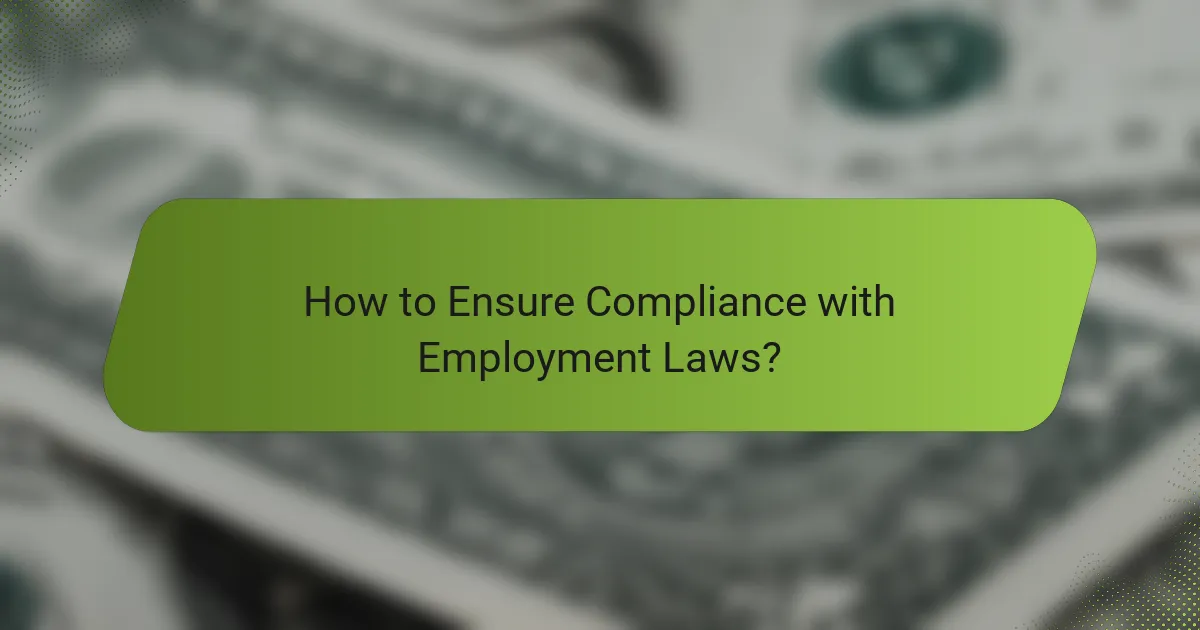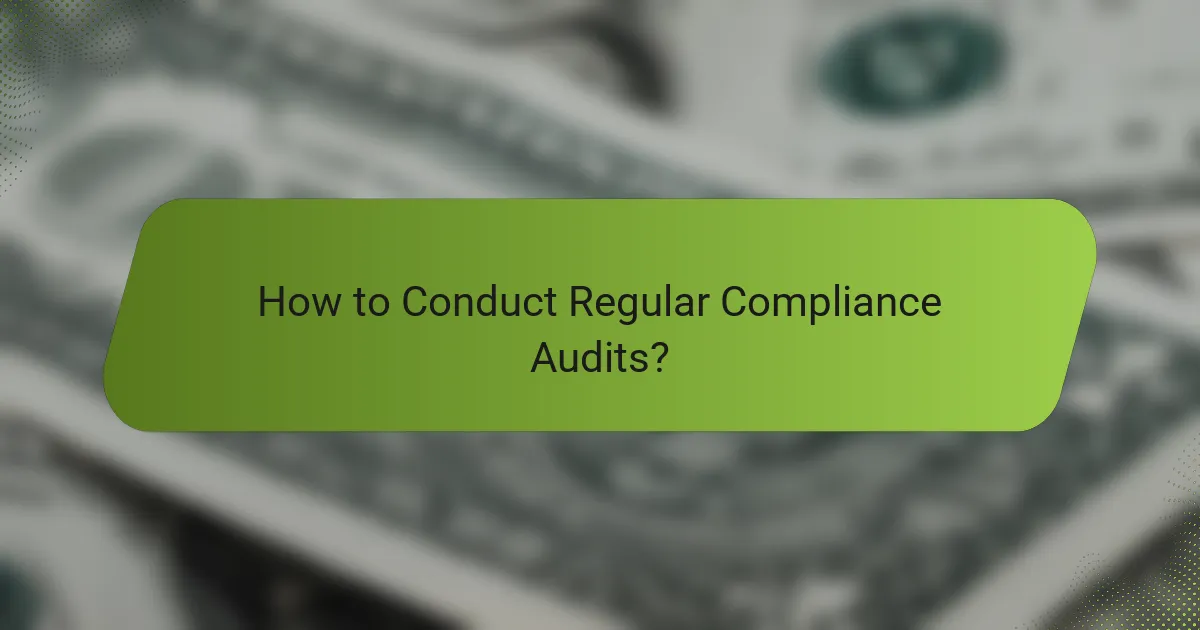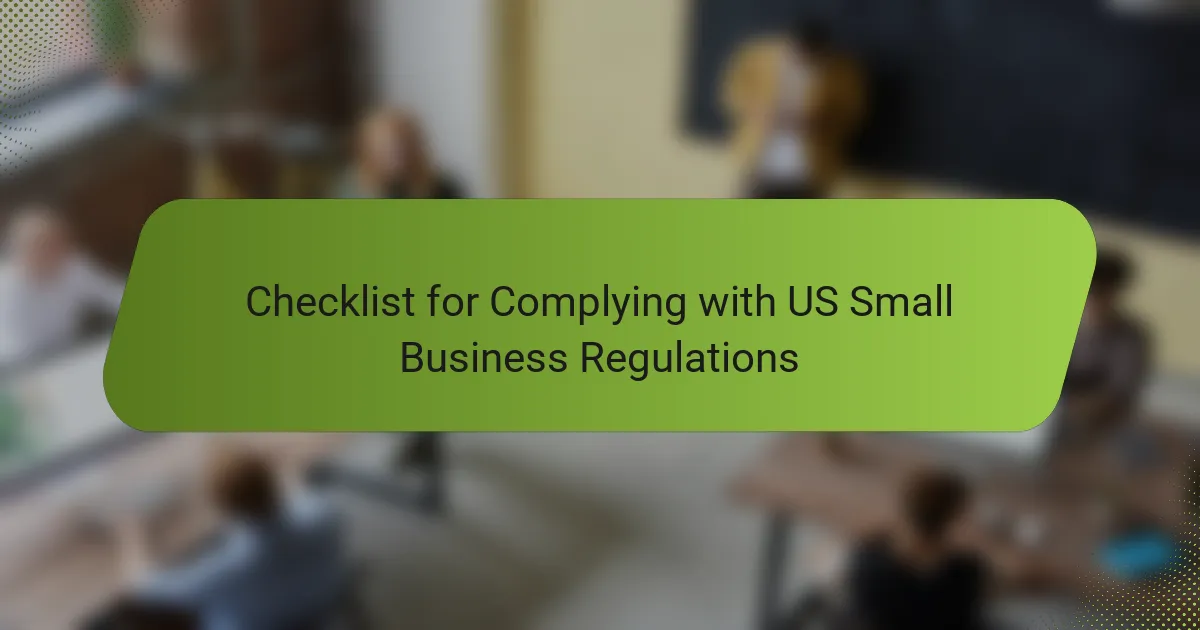Complying with US small business regulations is crucial for legal operation and avoiding potential penalties. This involves understanding and adhering to various federal, state, and local requirements, including registering your business and obtaining necessary licenses and permits. By following a comprehensive checklist, small business owners can navigate the complexities of compliance effectively.

What Are the Key Regulations for US Small Businesses?
US small businesses must comply with a variety of regulations at the federal, state, and local levels. Understanding these regulations is essential for legal operation and can help avoid penalties or business disruptions.
Federal regulations
Federal regulations encompass a broad range of requirements that small businesses must follow. Key areas include labor laws, tax obligations, environmental regulations, and health and safety standards. For instance, businesses must adhere to the Fair Labor Standards Act (FLSA), which governs minimum wage and overtime pay.
Additionally, the Internal Revenue Service (IRS) requires businesses to properly report income and pay applicable taxes. Small businesses should also be aware of regulations from agencies like the Occupational Safety and Health Administration (OSHA) to ensure workplace safety.
State regulations
State regulations vary significantly and can impact various aspects of business operations, including licensing, taxation, and employment laws. Each state has its own requirements for business registration, sales tax collection, and employee benefits. For example, some states may have higher minimum wage laws than the federal standard.
It is crucial for small business owners to familiarize themselves with their specific state’s regulations to ensure compliance. Resources like state government websites can provide valuable information on local requirements.
Local regulations
Local regulations often include zoning laws, building codes, and health department requirements that can affect where and how a business operates. These regulations can dictate the types of businesses allowed in certain areas and the standards for physical premises. For instance, a restaurant must comply with local health codes to ensure food safety.
Small businesses should check with local government offices or chambers of commerce to understand the specific regulations that apply to their location. Ignoring local rules can lead to fines or even business closure.

How to Register Your Small Business in the US?
Registering your small business in the US involves several key steps to ensure compliance with federal and state regulations. This process typically includes selecting a business structure, obtaining an Employer Identification Number (EIN), and registering with state authorities.
Choose a business structure
The first step in registering your small business is to choose a suitable business structure, such as a sole proprietorship, partnership, corporation, or limited liability company (LLC). Each structure has different implications for liability, taxation, and regulatory requirements.
For example, an LLC offers liability protection and flexible tax options, while a sole proprietorship is simpler but exposes you to personal liability. Consider your business goals, the level of risk, and potential tax benefits when making this decision.
Obtain an EIN
An Employer Identification Number (EIN) is essential for most businesses, as it serves as a unique identifier for tax purposes. You can apply for an EIN through the IRS website, and the process is typically quick and free.
Having an EIN is crucial if you plan to hire employees, open a business bank account, or apply for business licenses. Ensure you have your business structure and other necessary information ready when applying to streamline the process.
Register with state authorities
After choosing your business structure and obtaining an EIN, you must register your business with the appropriate state authorities. This often involves filing specific forms and paying registration fees, which can vary by state and business type.
Check with your state’s Secretary of State office for the exact requirements and fees. Additionally, some states may require you to obtain permits or licenses depending on your industry, so be sure to research these requirements thoroughly to avoid potential fines or delays.

What Licenses and Permits Do You Need?
To operate a small business in the U.S., you typically need various licenses and permits that depend on your industry, location, and specific business activities. Understanding these requirements is crucial for compliance and avoiding penalties.
Industry-specific licenses
Industry-specific licenses are required for businesses operating in regulated sectors such as healthcare, finance, and transportation. For instance, a restaurant must obtain a food service license, while a financial advisor needs a securities license. Research your industry to identify the necessary licenses and ensure they are up to date.
Each state may have different requirements, so it’s essential to check with your local regulatory body or industry association. Failure to secure the appropriate licenses can lead to fines or even business closure.
Health and safety permits
Health and safety permits ensure that your business complies with local health codes and safety regulations. For example, businesses that handle food must adhere to health department regulations and may need a health permit. Similarly, construction companies often require safety permits to ensure compliance with occupational safety standards.
Regular inspections may be part of maintaining these permits. Keep records of compliance and be proactive in addressing any health or safety issues to avoid penalties.
Local business permits
Local business permits are often required by city or county governments and can include zoning permits, signage permits, and business licenses. These permits ensure that your business operations align with local regulations and zoning laws. For example, a retail store may need a zoning permit to operate in a commercial area.
Check with your local city or county clerk’s office to determine the specific permits needed for your business type and location. Renew these permits as required to maintain compliance and avoid interruptions in your business operations.

How to Ensure Compliance with Employment Laws?
To ensure compliance with employment laws, small businesses must understand and adhere to various regulations that govern workplace practices. This includes labor laws, safety regulations, and proper maintenance of employee records.
Understand labor laws
Understanding labor laws is crucial for small businesses to avoid legal issues and penalties. Key areas include minimum wage, overtime pay, and anti-discrimination laws. Familiarize yourself with both federal and state regulations, as they can vary significantly.
Regularly review updates to labor laws to ensure compliance. Consider consulting with legal experts or using compliance software to stay informed about changes that may affect your business.
Implement workplace safety regulations
Implementing workplace safety regulations is essential for protecting employees and minimizing liability. Familiarize yourself with the Occupational Safety and Health Administration (OSHA) standards relevant to your industry. Conduct regular safety training and drills to ensure employees are aware of safety protocols.
Establish a clear reporting system for safety hazards and encourage employees to report unsafe conditions. Regularly review and update safety policies to reflect any changes in regulations or workplace conditions.
Maintain employee records
Maintaining accurate employee records is a legal requirement and helps ensure compliance with various employment laws. Keep records of hiring documents, payroll information, and performance evaluations for each employee. These records should be stored securely and accessible for audits or inquiries.
Establish a retention policy that outlines how long to keep different types of records. Generally, it’s advisable to retain payroll records for at least three years and other employment records for a minimum of four years to comply with federal regulations.

What Are the Tax Obligations for Small Businesses?
Small businesses in the U.S. have various tax obligations that include federal, state, and local taxes. Understanding these requirements is crucial for compliance and avoiding penalties.
Federal tax requirements
At the federal level, small businesses must file income taxes based on their business structure, such as sole proprietorships, partnerships, or corporations. Most businesses are required to pay estimated taxes quarterly if they expect to owe tax of a certain amount for the year.
Additionally, businesses must withhold payroll taxes for employees, including Social Security and Medicare taxes. It’s important to keep accurate records and file the appropriate forms, such as Form 1040 for sole proprietors or Form 1120 for corporations.
State tax obligations
State tax obligations vary by state and may include income tax, franchise tax, and unemployment tax. Each state has its own rules regarding tax rates and filing deadlines, so it’s essential to consult your state’s tax authority for specific requirements.
Some states also require businesses to register for a state tax identification number, which is necessary for tax filings and compliance. Be aware of local tax incentives or credits that may apply to your business, as these can significantly impact your tax liability.
Sales tax registration
If your small business sells goods or certain services, you may need to register for sales tax collection. This involves obtaining a sales tax permit from your state’s revenue department, which allows you to collect sales tax from customers.
Sales tax rates differ by state and sometimes by locality, so ensure you understand the applicable rates in your area. Regularly remit collected sales tax to the state, typically on a monthly or quarterly basis, to stay compliant and avoid penalties.

How to Conduct Regular Compliance Audits?
Regular compliance audits are essential for ensuring that your small business adheres to applicable regulations and standards. These audits help identify gaps in compliance and allow for timely corrective actions to mitigate risks.
Establish audit frequency
Determining how often to conduct compliance audits is crucial. For many small businesses, an annual audit is a good starting point, but semi-annual or quarterly audits may be necessary depending on the industry and regulatory requirements.
Consider factors such as changes in regulations, business operations, and previous audit findings when setting the frequency. Regular audits can help maintain a proactive approach to compliance and reduce the risk of violations.
Utilize compliance checklists
Compliance checklists serve as practical tools to ensure all necessary regulations are reviewed during an audit. These lists can include items such as financial reporting requirements, employee training mandates, and safety regulations.
Creating tailored checklists based on your specific industry and regulatory environment can streamline the audit process. Regularly updating these checklists to reflect any changes in laws or business practices is also essential for maintaining compliance.
Engage third-party auditors
Hiring third-party auditors can provide an objective assessment of your compliance status. These professionals bring expertise and an outsider’s perspective, which can uncover issues that internal teams might overlook.
When selecting a third-party auditor, consider their experience in your industry and their familiarity with relevant regulations. While this may involve additional costs, the investment can lead to significant savings by preventing potential fines and legal issues.
